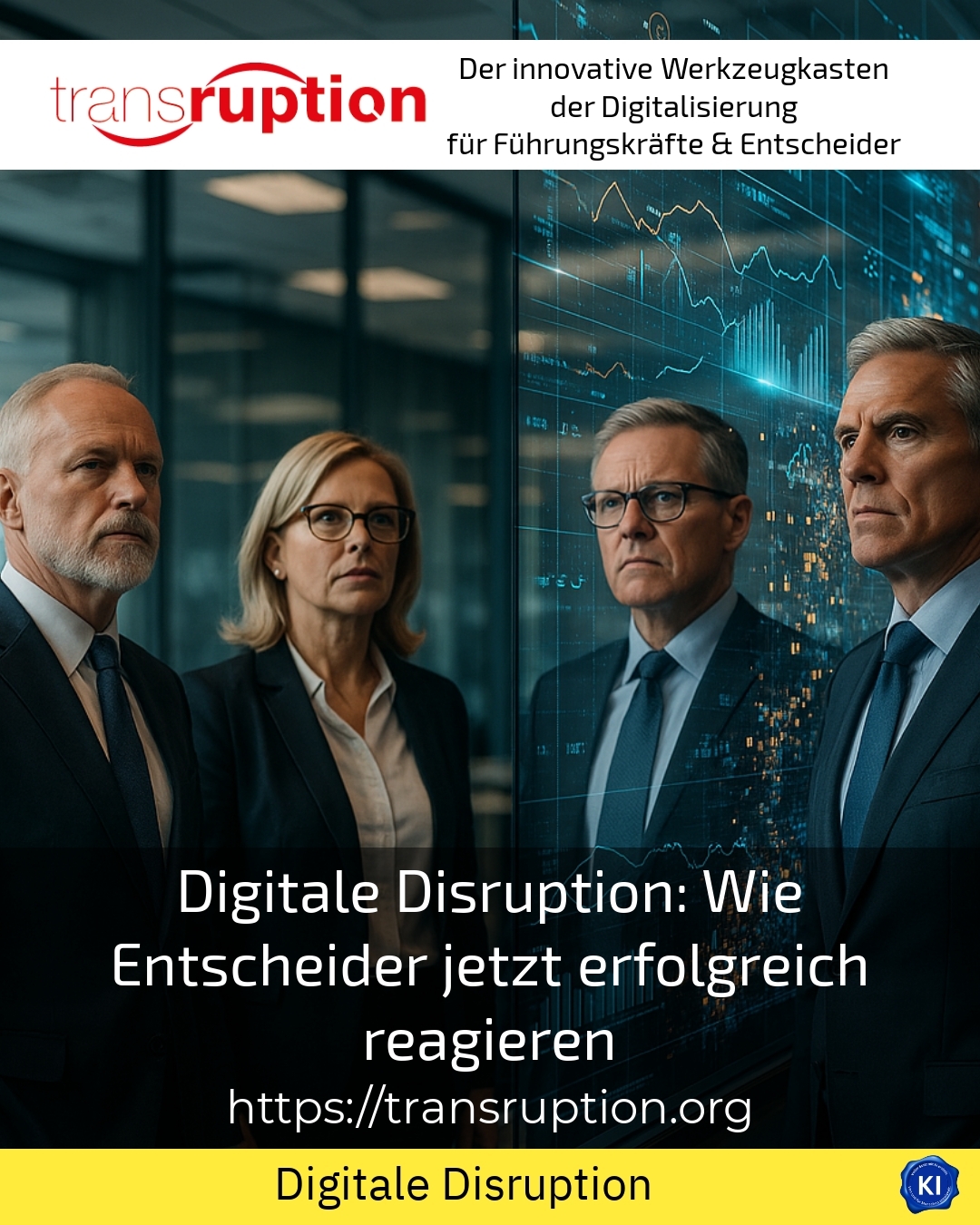Digital disruption has fundamentally changed many industries in recent years. Companies such as Airbnb, Uber and Netflix have challenged traditional business models with innovative approaches and in some cases even replaced them. These changes require decision-makers to adapt flexibly and utilise new digital technologies in order to remain competitive. Digital disruption goes beyond simple digital transformation and creates new forms of value creation and new markets[1][2][3].
What is digital disruption?
Digital disruption describes the radical transformation of markets and business models through the use of digital technologies. This transformation leads to the emergence of new digital business models and changes the way in which customers interact with products and services. One example of this is the music industry, which has been significantly changed by streaming services such as Spotify and Apple Music. The purchase of physical CDs and music downloads has decreased significantly as customers now have access to a huge music library without having to buy individual albums[1][3][5].
Examples of digital disruption
Another example is the photography industry. The digitalisation of photography has greatly reduced the demand for analogue films and photo development. Companies such as Kodak, which did not switch to digital photography in time, had to file for bankruptcy[4]. The taxi industry has also been revolutionised by Uber, which has introduced a platform that connects drivers and passengers directly, challenging the traditional taxi industry[2][5].
Strategies for coping with digital disruption
In order to successfully deal with digital disruption, companies should actively respond to digital innovations. This can be done by introducing new technologies such as big data and machine learning. These technologies enable companies to optimise their processes and develop new business models that are better tailored to changing customer needs[9].
BEST PRACTICE at the customer (name hidden due to NDA contract)A company in the retail sector has increased its sales by 30 % by implementing e-commerce platforms and personalised customer communication. This was achieved by comprehensively analysing customer preferences and adapting the offering to digital needs.
Utilise resources efficiently
Another strategy is to utilise existing resources efficiently. Companies such as Airbnb and Uber have shown that it is possible to tap into large markets without owning resources such as property or vehicles. Instead, they pool external resources and offer them to customers, resulting in a win-win situation for both sides[2][5].
Digital disruption as an opportunity
Digital disruption offers companies the opportunity to reinvent themselves and tap into new markets. By introducing new technologies and business models, companies can increase their competitiveness and adapt to changing customer needs. One example of this is Tesla, which has revolutionised the automotive industry with the development of electric cars and self-driving technologies[5].
My analysis
To summarise, digital disruption is a decisive factor for companies to be successful in the digital age. By adapting to digital trends and introducing new technologies, companies can strengthen their position in the market and capitalise on new opportunities. Digital disruption requires courage, a willingness to take risks and resources, but also offers the opportunity to create new markets and revolutionise existing ones[6][8].
Further links from the text above:
For more information on the topics of digital disruption and disruptive business models, you can consult the following sources:
For more information and if you have any questions, please contact Contact us or read more blog posts on the topic TRANSRUPTION here.
















